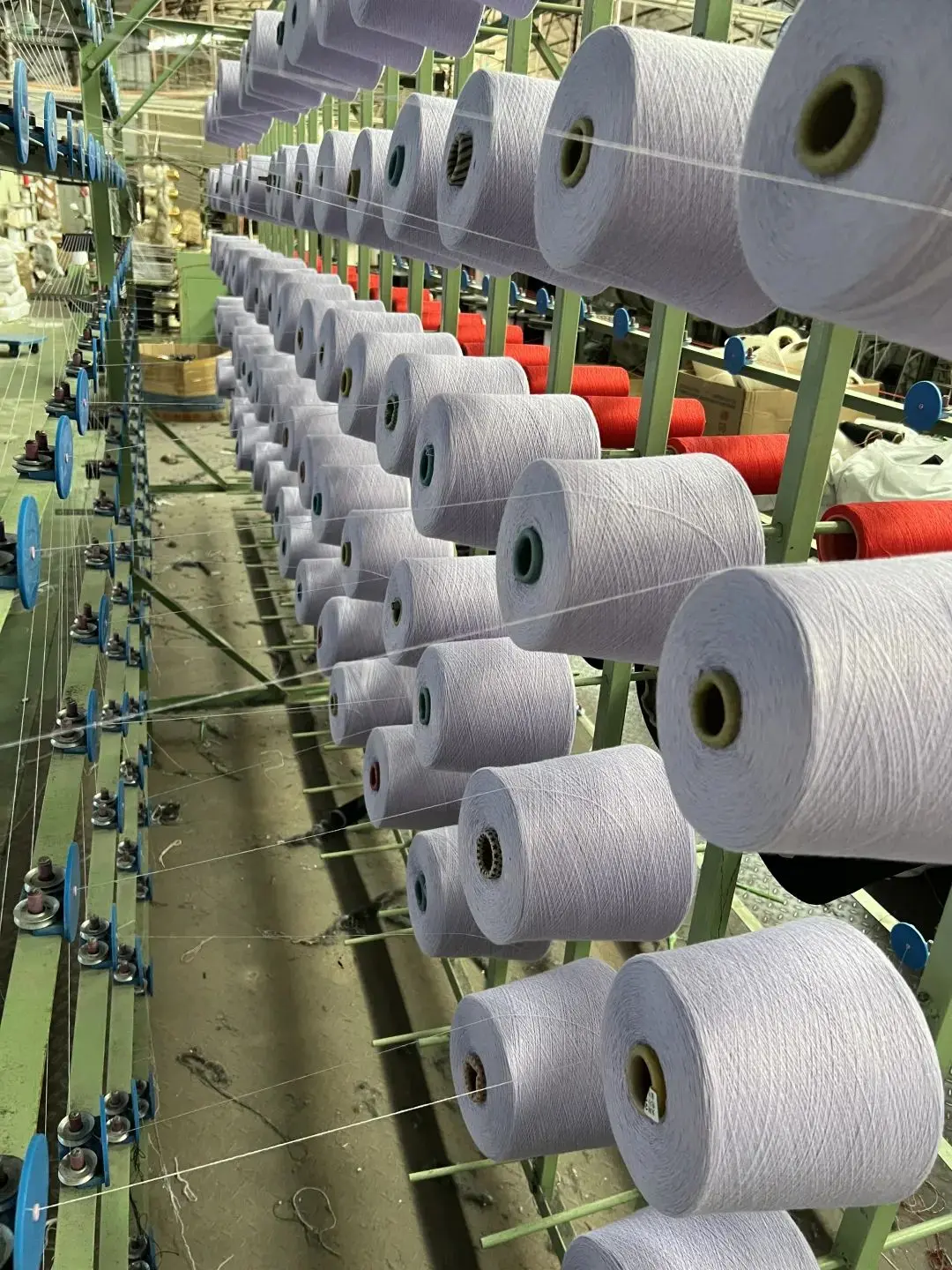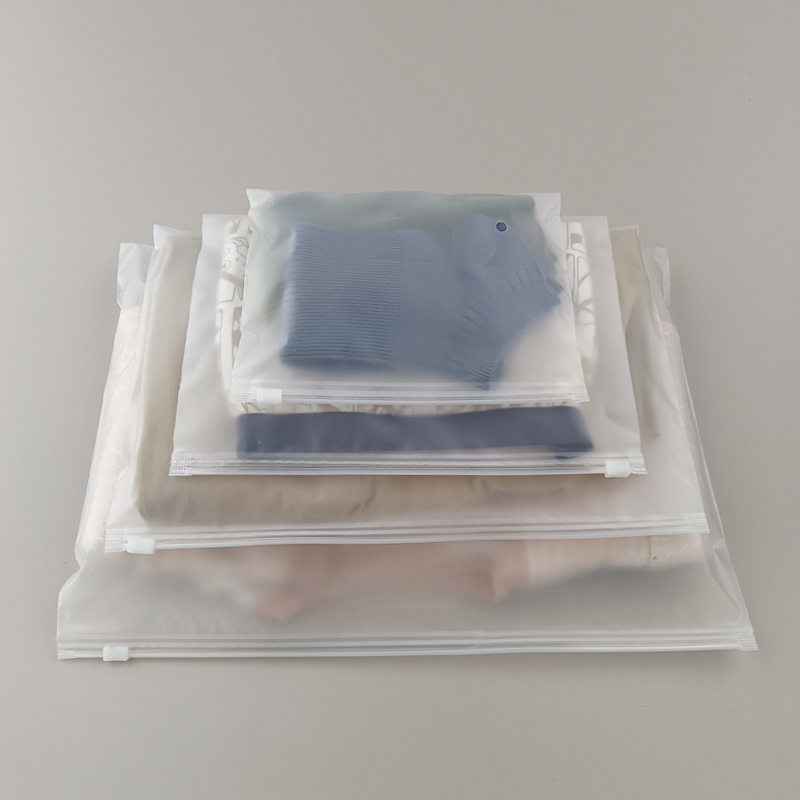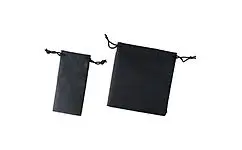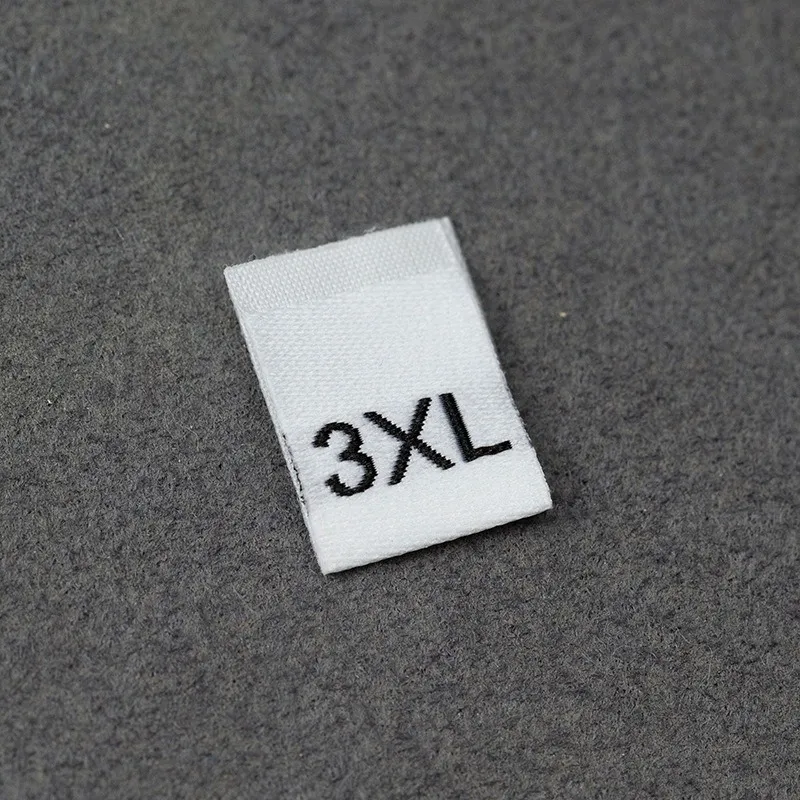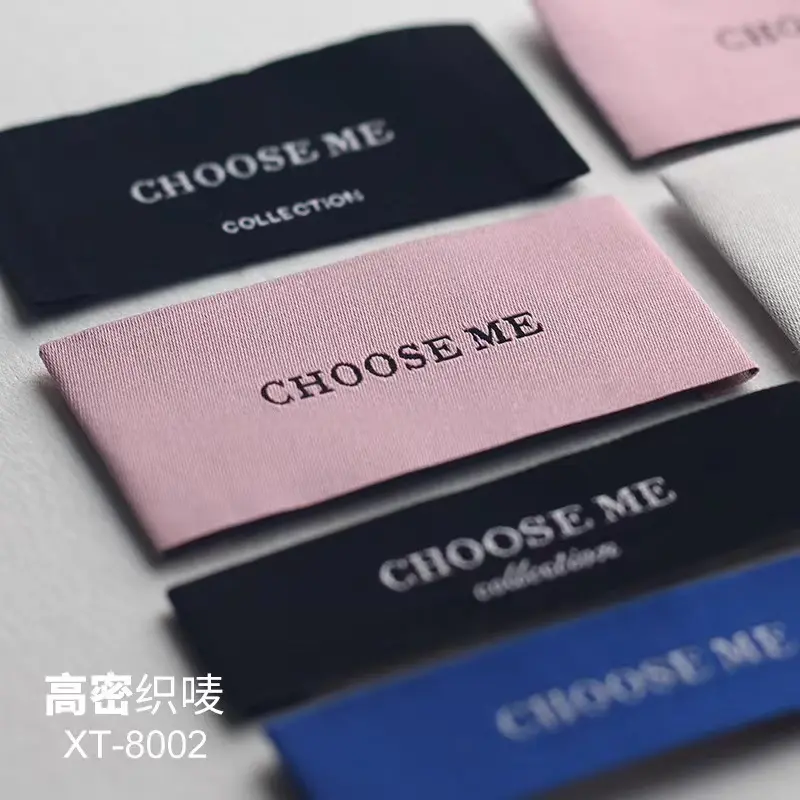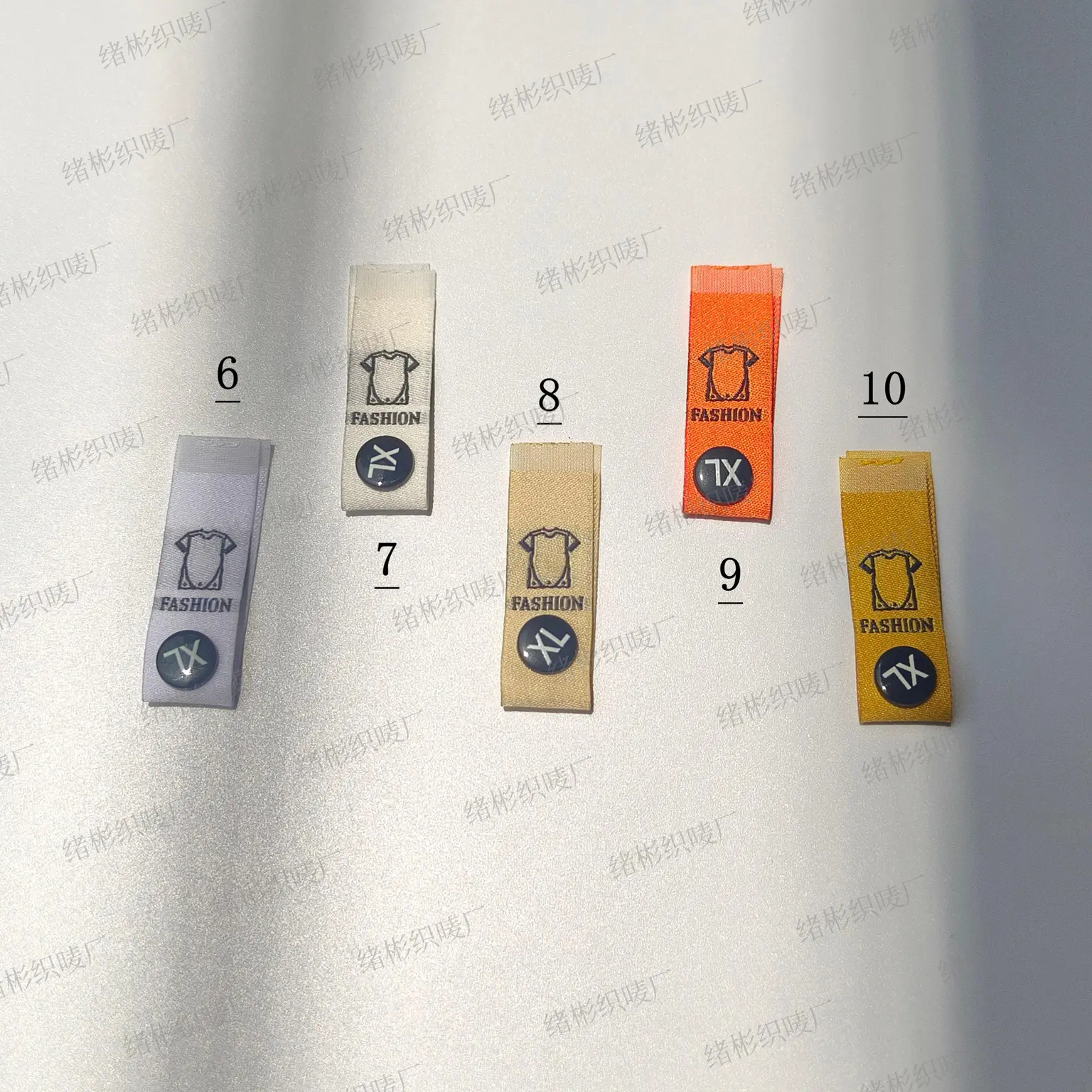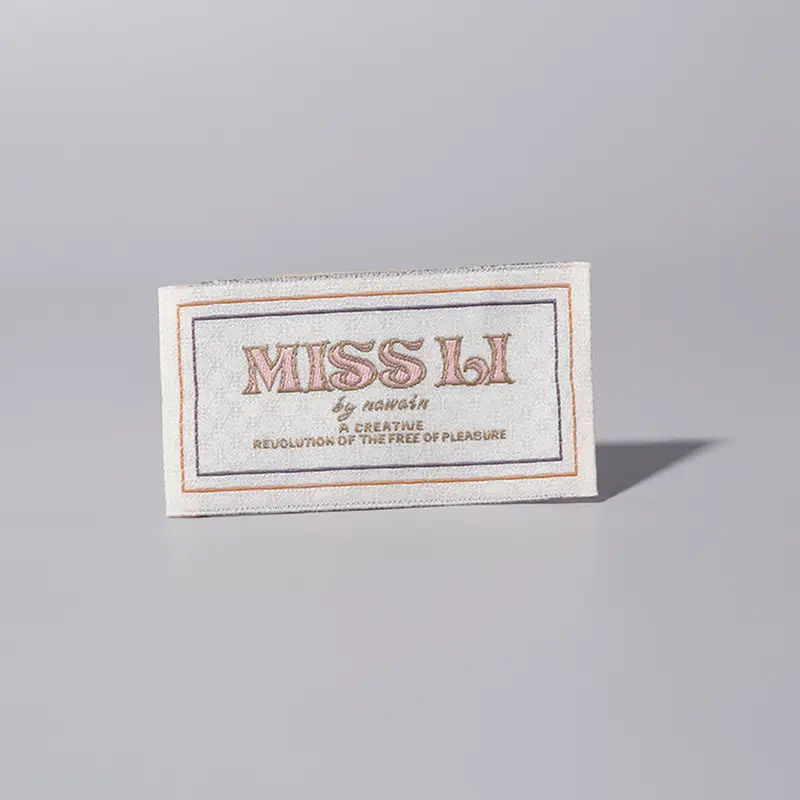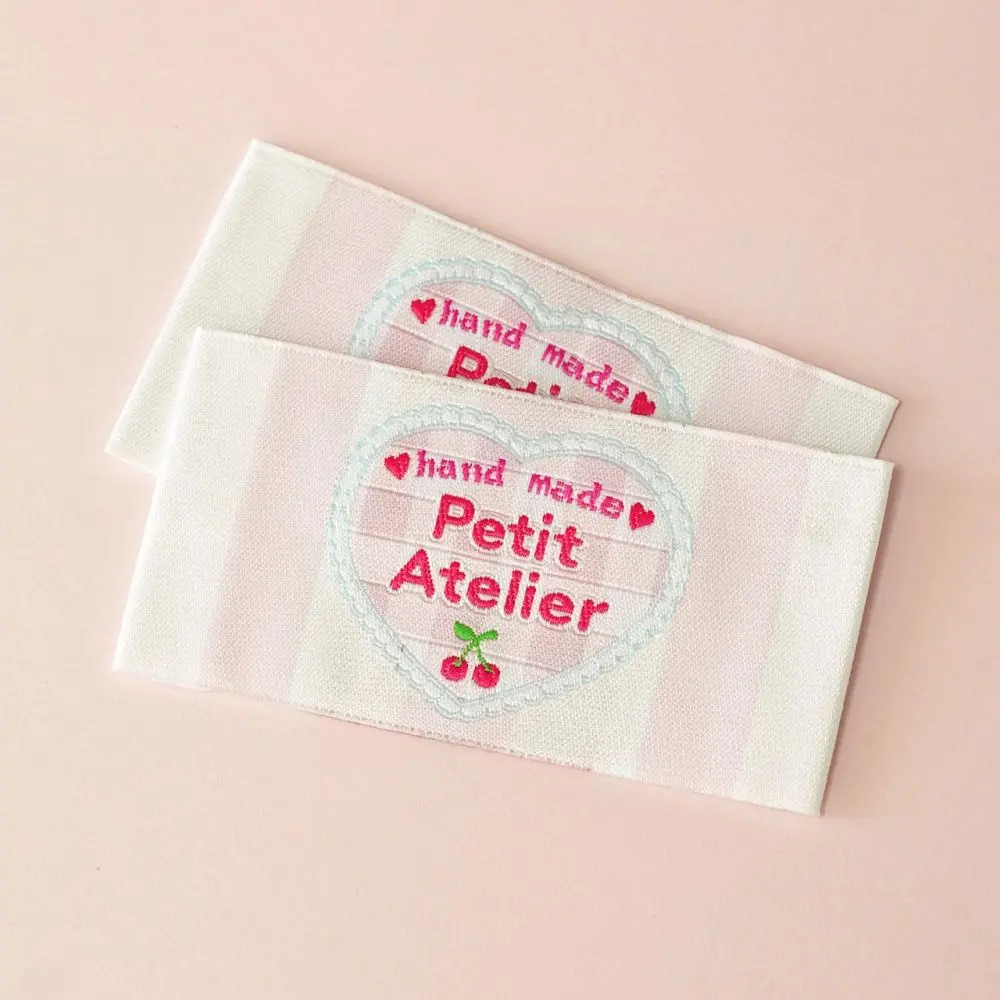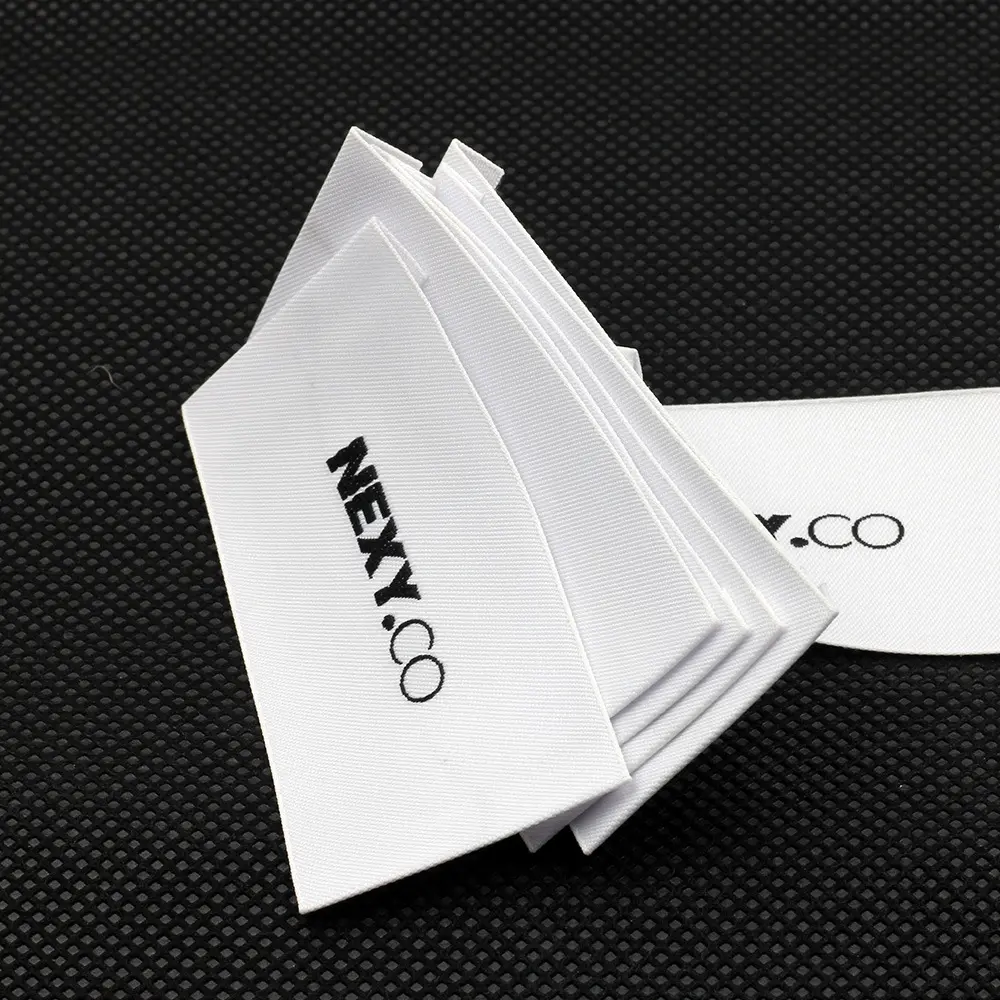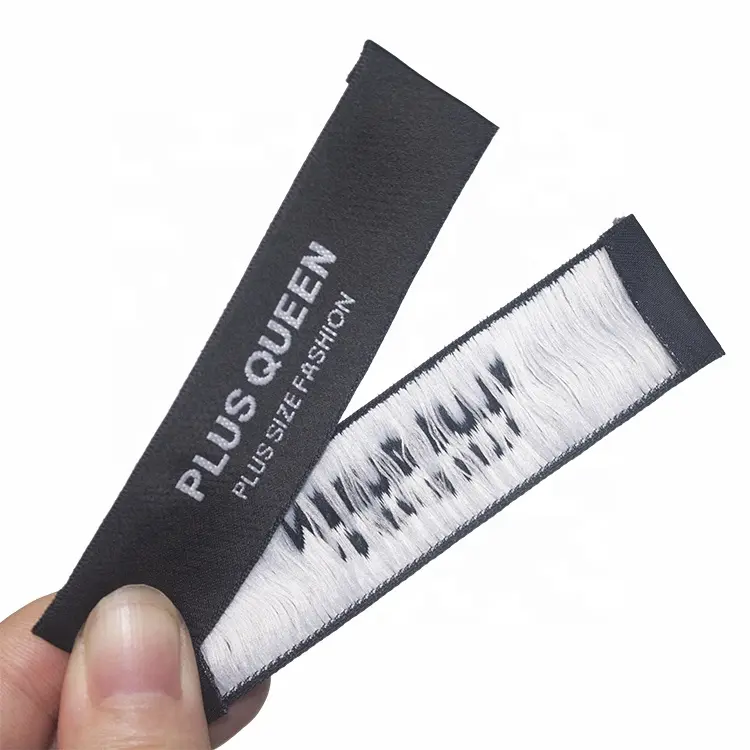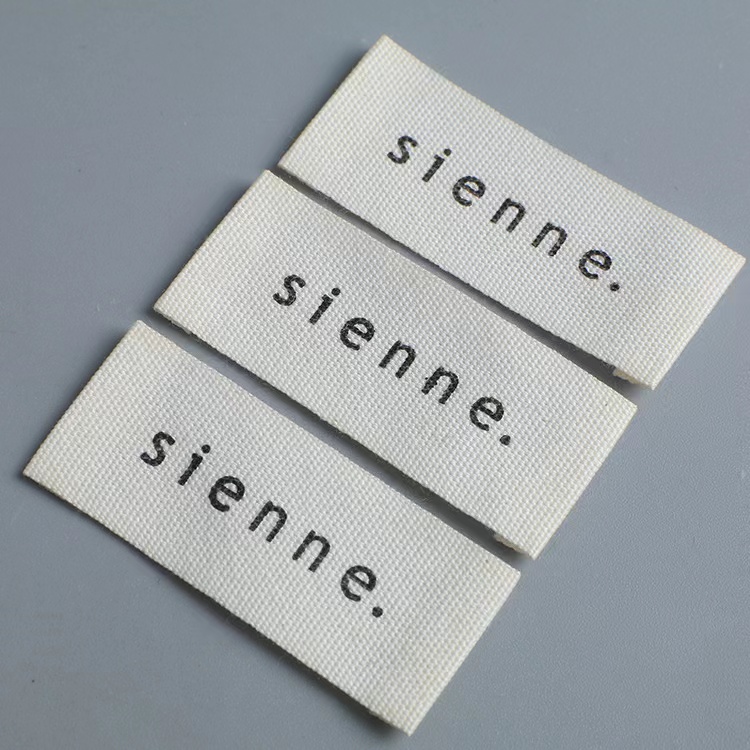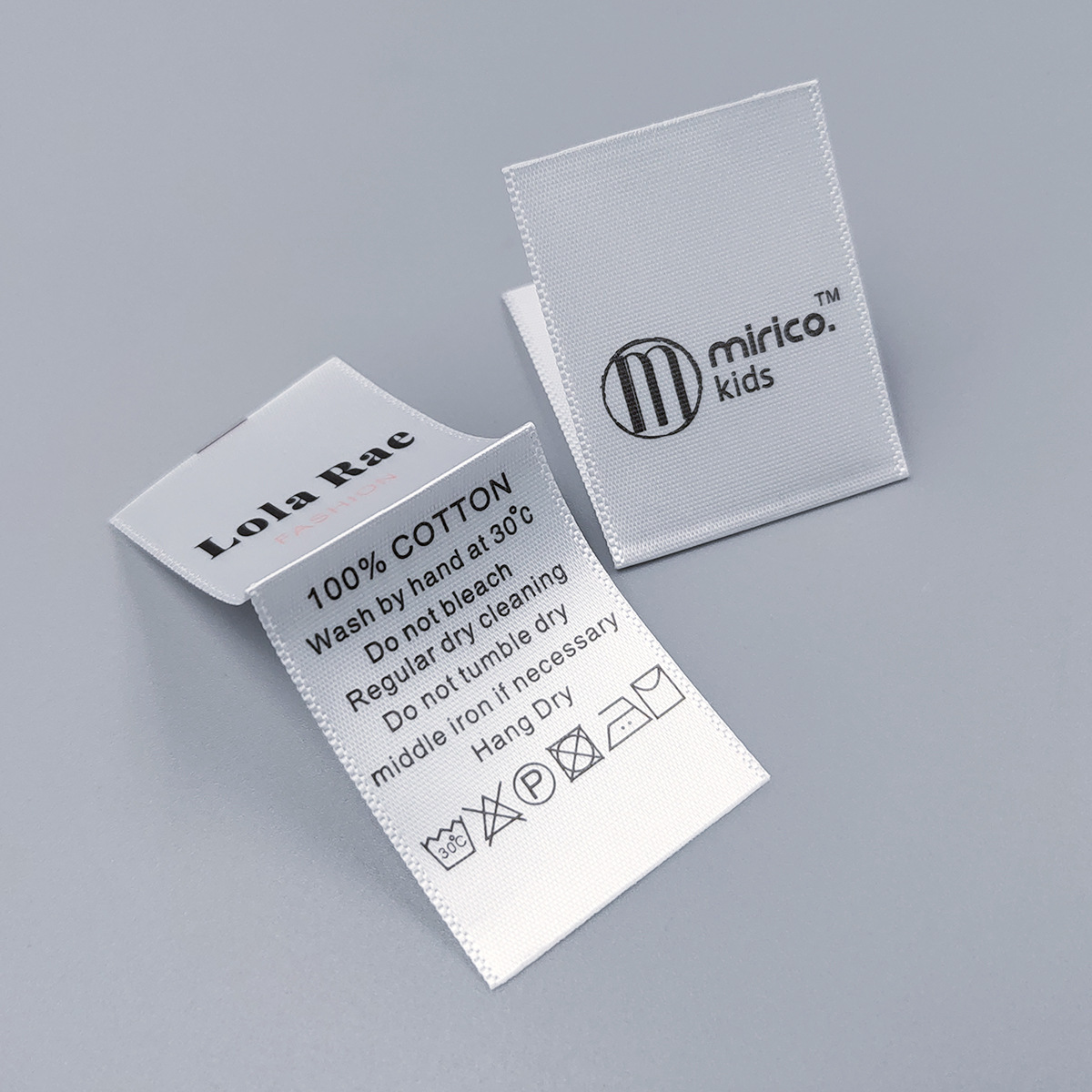Polyester Woven vs Cotton Woven Labels: Which Is Better?
Polyester Woven vs Cotton Woven Labels: Which Is Better?
In the realm of garment accessories, woven labels are a crucial carrier of brand identity. They influence not only visual presentation but also wearing comfort and durability. At LIJIE, we understand that the primary materials for woven labels are polyester yarn and cotton yarn. Their differences result in significant variations in performance, texture, and color expression. So, which one suits you better? Let’s compare them across several dimensions.
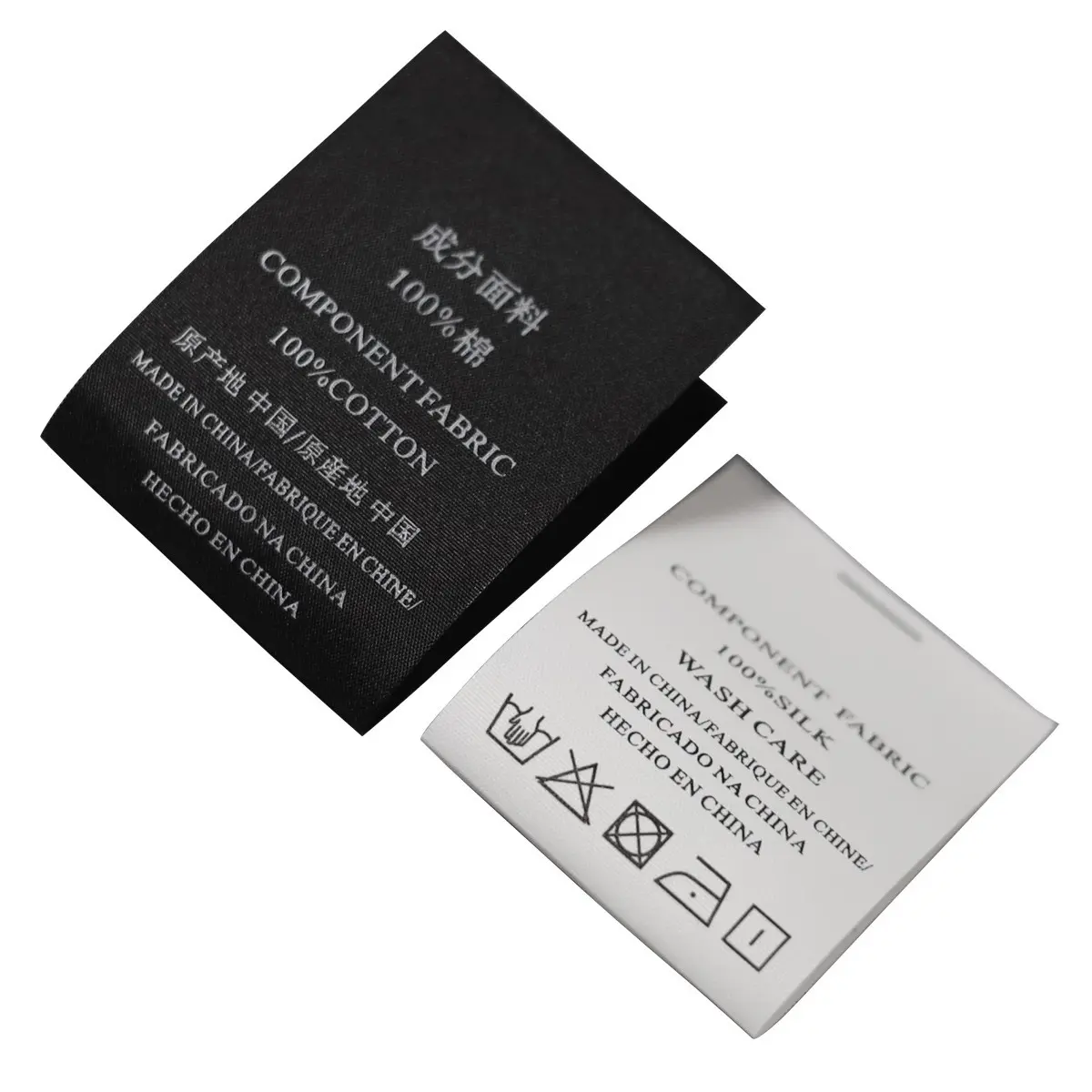
Material Composition
Cotton woven labels are made from a blend of 60% cotton and 40% polyester, combining the natural softness of cotton with the structural integrity of synthetic fibers. In contrast, polyester woven labels are made from 100% polyester, offering consistent industrial standards and stability.
Background Color Options
Cotton woven labels offer limited background color options, usually only available in natural tones. Custom dyeing is required for other colors. Polyester woven labels, however, come in 1,184 ready-made colors, allowing for flexible combinations from background to pattern and greatly enhancing design freedom.
LOGO Color Expression
Both label types support 1,184 standard logo colors. The key difference is that polyester offers higher saturation and colorfastness, while cotton labels may show slight inconsistencies due to the natural properties of cotton fibers.
Size Support Range
Both materials support a similar size range. For labels without borders, the height can range from 1 to 20 cm. For bordered labels, it’s recommended to keep the height between 1 and 4.5 cm. There are no restrictions on length, making them suitable for various design needs.
Feel and Comfort
If you prioritize a soft and skin-friendly texture, cotton woven labels are the better choice, ideal for intimate wear or high-end casual apparel. While polyester labels also offer softness, they tend to feel smoother and less natural to the touch.
Stability and Color Fastness
Polyester labels have a clear advantage in stability. They are resistant to deformation, structurally durable, and most importantly, never fade. Cotton labels, on the other hand, may experience slight background fading or shrinkage due to the nature of the fibers, especially after multiple washes.
Cost Comparison
Cotton woven labels are generally more expensive than polyester ones. This is due to higher raw material costs and longer dyeing and production cycles. Polyester, being highly industrialized, is more efficient to produce and lower in cost—ideal for mass production.
Application Scenarios
Cotton woven labels are best suited for garments that emphasize a natural, eco-friendly, or vintage style, such as cotton-linen blends or canvas wear—especially jackets and workwear where texture is key. However, they are not suitable for wash care labels due to potential fading or deformation.
Polyester woven labels are more versatile and widely used. They cover everything from main labels and side labels to care labels. Even in high-temperature or high-humidity conditions, they retain their structure and color, making them the mainstream choice for most brands.
If your product emphasizes a natural, soft, and authentic feel, cotton woven labels better convey the warmth of your brand. But if you prioritize efficiency, color performance, and durability, polyester woven labels are the more practical choice. Each material has its unique strengths—the key is choosing based on your brand positioning and application needs.
More:Backpack Hang Tags | Kraft Paper Hang Tags | Clothing Hang Tags | Cotton Label Washing Tag























